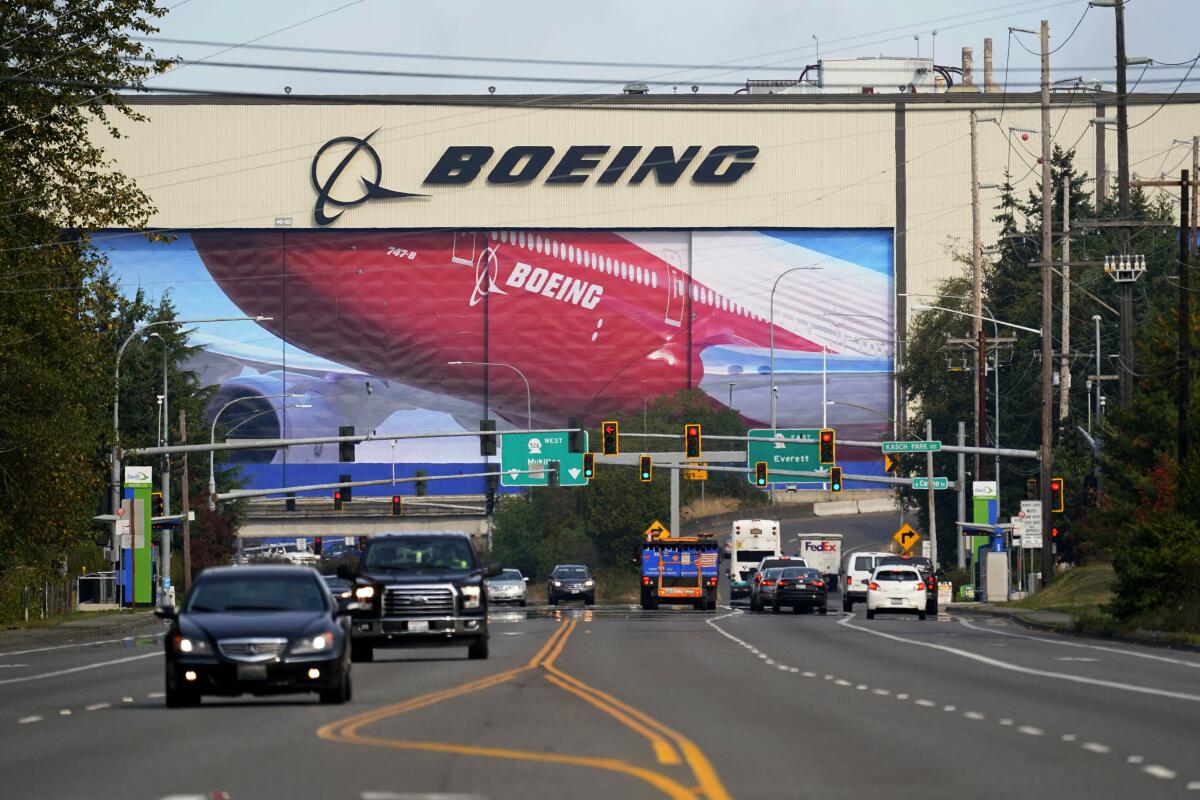EU moves ahead with tariffs on U.S. but hopes for change under Biden

- Share via
BRUSSELS — The European Union pressed ahead Monday with plans to impose tariffs and other penalties on up to $4 billion worth of U.S. goods and services but expressed hope that trade ties would improve once President Trump leaves office.
European trade ministers discussed the move by videoconference Monday after international arbitrators gave the EU, the world’s biggest trade bloc, the green light for tariffs last month because of illegal American support for airplane-maker Boeing.
A year ago, the World Trade Organization authorized the United States to slap penalties on EU goods worth up to $7.5 billion — including Gouda cheese, single-malt whiskey and French wine — over European support for Boeing rival Airbus.
After Trump also imposed tariffs on EU steel and aluminum and threatened punitive duties on cars, the Europeans had hoped that he would hold fire on the tariffs related to the Airbus-Boeing dispute. But having repeatedly failed to achieve a negotiated solution, the EU is now ready to announce punishment of its own.
“The U.S. has imposed their tariffs following the WTO ruling in [the] Airbus case. Now we have a WTO ruling ... allowing us to impose our tariffs, and that’s what we are doing,” EU Commission Executive Vice-President Valdis Dombrovskis told reporters.
“Of course, we remain open for a negotiated solution. Our proposal remains on the table that both sides withdraw their tariffs,” Dombrovskis said. But he noted that, despite several appeals, “so far, the U.S. has not agreed to withdraw their tariffs.”
The trade wars threatening to push the global economy into recession are entering a new phase, with the U.S. and EU escalating a dispute that endangers the world’s biggest trade relationship.
The Europeans are hopeful that Trump’s protectionist trade stance will soften under President-elect Joe Biden. Dombrovskis welcomed Biden’s commitment to international alliances, the multilateral system and to improving ties with the EU.
German Economy Minister Peter Altmaier, whose country holds the EU’s rotating presidency, said the bloc has “great expectations” and “hope that the U.S. presidential election will also be linked to a return to multilateral approaches to international trade, and that it will be possible to overcome past conflicts.”
In terms of tariffs over Boeing, the EU had released a preliminary list suggesting that it could go after a wide range of U.S. products, including frozen fish and shellfish, dried fruit, tobacco, rum and vodka, handbags, motorcycle parts and tractors.
Just before last week’s presidential election, Airbus CEO Guillaume Faury told the Associated Press that his company was “very happy” with the WTO ruling. He lamented the long-running dispute over airplane production and said that “these stories across the Atlantic are really a lose-lose for everyone.”
The Europeans remain reluctant to ramp up trade tensions as the COVID-19 pandemic ravages economies around the world.
Some 16 million workers on both sides of the Atlantic have jobs supported by transatlantic trade, the biggest such relationship in the global economy. Even before the pandemic hit, tit-for-tat tariffs over the last four years have affected companies and people making and selling a host of different goods.
Boeing itself said last month that it would cut 7,000 more jobs as the coronavirus smothers demand for new aircraft and pushed it to a loss.
More to Read
Sign up for Essential California
The most important California stories and recommendations in your inbox every morning.
You may occasionally receive promotional content from the Los Angeles Times.











